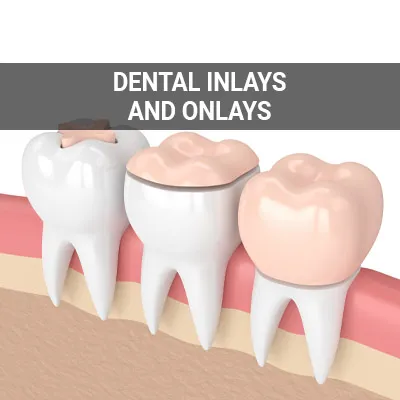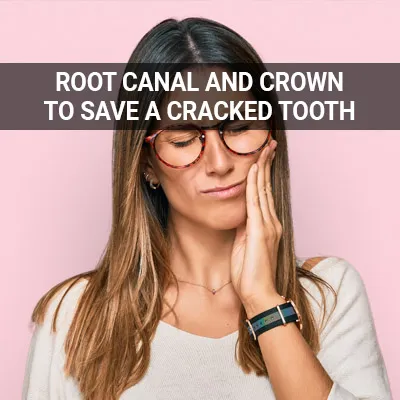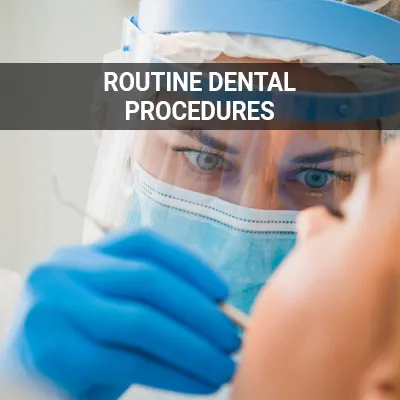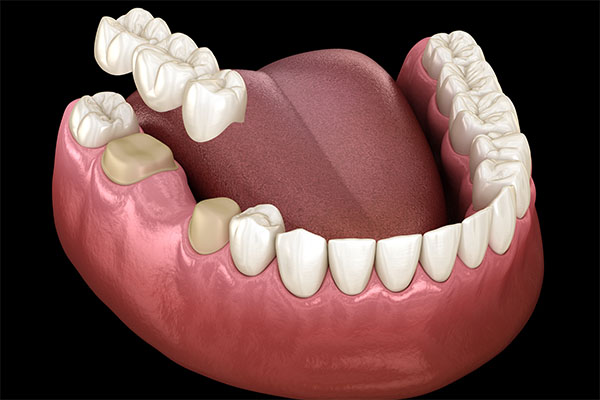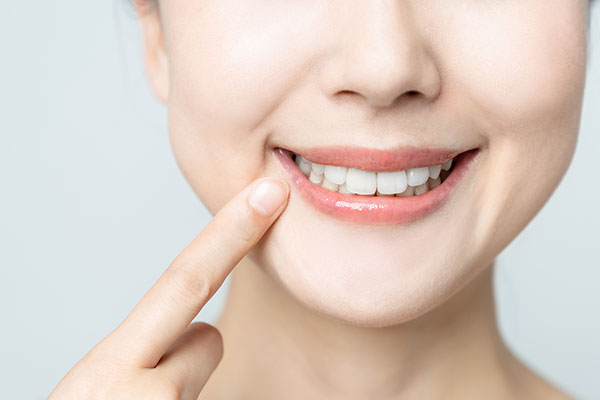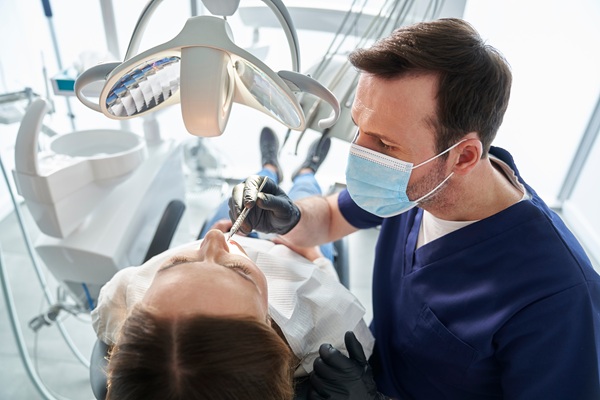Dental Crowns and Dental Bridges Santa Clarita, CA
One of the most common dental treatments involves fixing tooth decay. The first line of defense against a cavity is a filling. However, deeper decay may require more extensive repair. In such cases, dentists may rely on a dental crown treatment or a dental cap.
Dental crown treatment is available at White Crown Dental in Santa Clarita and the surrounding area. Crowns help restore a tooth that has significant damage with a custom-sized cap that fits over the old tooth. We provide dental crowns and restorations for our patients. For broken, damaged, or decaying teeth, crowns may be the right solution. Call us at (661) 425-0008 to get your teeth problems checked out today.
Dental Crowns Explained
According to the American College of Prosthodontists, the most common dental restoration is a single dental crown. Dentists utilize dental crowns in a variety of treatment situations. Crowns may help protect vulnerable teeth from further decay. They may cap damaged teeth and cover deep fillings. Crowns often complete dental implants or cover teeth treated with root canals. Dentists can work with their dental lab and the patient to create custom-fitting dental crowns that may restore a tooth's shape and size to near perfect.
“Dentists can work with their dental lab and the patient to create custom-fitting dental crowns that may restore a tooth’s shape and size to near perfect.”
Bruxzir Crowns
BruxZir Full-Strength is a monolithic material with no porcelain overlay that is used for crowns, bridges, screw-retained implant crowns, inlays, and onlays. First launched as being “More Brawn Than Beauty,” the material was originally intended to provide a durable, more esthetic alternative to metal occlusal PFMs or cast gold restorations for demanding situations like bruxers, implant restorations, and areas with limited occlusal space. Now, thanks to advancements made to the formulation, BruxZir Full-Strength restorations exhibit improved translucency and color similar to natural dentition. Complete color penetration all the way through the restorations ensures greater shade consistency and prevents any shade change after occlusal adjustment. BruxZir's unique composition is backed by research from Gordon J. Christensen Clinicians Report®, proving its superior clinical performance.
Benefits of Getting a Zirconia Crown
Zirconia is the most durable monolithic ceramic, which is a ceramic made without added materials. When comparing it to glass ceramics and dental composite, zirconia is more split-resistant, stiffer, and stronger. These properties hinder cracking and chipping, both on the surrounding teeth and the one underneath the crown. Zirconia has a better shielding capacity that can take higher loads without compromising the integrity of your smile.Zirconia is a newer material for dental restorative treatments. It's a type of ceramic — or, in more specific terms, a zirconium oxide — that's stronger than porcelain and some metal alloys, and it gets fewer sharp edges from the normal "wear and tear" that happens over time. Zirconia crowns tend to cause less stress and damage on opposing pieces than their porcelain counterparts. The latter might act like sandpaper when rubbing against your other teeth and causing enamel erosion. That's one of the many reasons dentists might recommend you to consider zirconia for your dental procedures.
Types of Zirconia Used on Crowns
From all the ceramic variations available to date, dentists seem to have two favorites. They often prefer using framework zirconia and full-contour zirconia for dental work. Both options are viable alternatives to using porcelain-metal composites and full-metal blends. Framework zirconia is best for anterior and posterior multi-unit bridges. By masking this versatile material with porcelain or glass, it can look almost like a natural tooth. Full-contour zirconia works better as a monolithic restoration.
How Long Will a Zirconia Crown Last?
Most dental crowns last between five and ten years when treated with care. Their longevity will depend on your oral hygiene, among other personal habits. For example, if you grind your teeth in your sleep, you might need a replacement faster than someone who doesn't. Other practices that will reduce your zirconia crown's life expectancy include:
- Chewing ice
- Opening packages with your teeth
- Biting your nails
- Bad hygiene – such as not brushing or flossing properly, or infrequent brushing or flossing.
- Inconsistent Dental Checkups and Cleaning.
How Dental Bridges Work with Dental Crowns
It is not uncommon for patients to get dental crowns to complete a dental bridge. According to WebMD, bridges fill in the gap left behind by a missing tooth. If a patient has a single missing tooth, dentists may restore it by creating a dental appliance that anchors to the two adjacent teeth. The dentist must reshape the two abutment teeth to secure the dental bridge. Reshaping these teeth involves removing much of the enamel. The abutment teeth are topped with dental crowns which attach to the new artificial tooth that makes up the middle piece of the bridge.
“The dentist must reshape the two abutment teeth to secure the dental bridge.”
Why Patients Get a Dental Crown
Some patients may choose dental crowns to avoid further damage or decay to an existing tooth or to maintain an aesthetically pleasing smile. Crowns can also help prevent tooth loss that could lead to additional oral health problems and more expensive dental work. Additionally, patients may find crowns help them maintain a normal bite and keep the teeth from shifting.
“Crowns also help prevent tooth loss that could lead to additional oral health problems and more expensive dental work.”
Check out what others are saying about our dental services on Yelp: Dental Crowns and Dental Bridges in Santa Clarita, CA
Receiving a Dental Crown Step-by-Step
It may take a few appointments for a patient to receive a crown. In many cases, the dental crown procedure is part of another dental treatment plan, such as a root canal. Here is the step-by-step process for getting a dental crown:
- Before the Crown. The dentist treats any problems before starting the dental crown creation process. Any infections or cavities must be addressed or filled. Sometimes, an old crown needs replacement. In this case, the dentist will remove the remnants first.
- Preparation. Next, the dentist must prepare the tooth for the crown. The dentist or another member of our team will shave down the tooth to make room for the crown. Then, the dental staff makes a series of impressions to send to the lab. Some patients receive a temporary crown at the end of this appointment.
- Crown Delivery. Once the crown is ready for delivery, the patient must return to the office for placement. First, the dentist tries on the crown to make sure it feels and looks right in the mouth. If it fits correctly, the dentist uses dental cement to glue it in place permanently.
“In many cases, the dental crown procedure is part of another dental treatment plan, such as a root canal.”
Questions Answered on This Page
Q. What are dental crowns used for?
Q. How do dental bridges work with dental crowns?
Q. Why should I get a dental crown?
Q. What is it like to go through the process of receiving a dental crown?
People Also Ask
Q. Am I a good candidate for a dental bridge?
Q. What is a dental emergency?
Q. What is restorative dentistry?
Frequently Asked Questions
Q. Does getting a dental crown hurt?
A. During preparation, the dentist may numb the area for the patient's comfort. After fitting, patients may have a little soreness in the area where the crown sits for a few days. Pain that continues well after the crown fitting may indicate a poor fit, which requires a return visit for an adjustment.
Q. Does a dental crown look natural?
A. Most dental crowns look just like the rest of the natural teeth. Dentists work to help patients select a natural-looking shade for the new dental crown that matches the other teeth. Today's dental crowns are indistinguishable from permanent teeth.
Q. Does a dental crown need replacement?
A. Dental crowns need replacement over time. The crown's material and the patient's oral health may determine how often they will need replacement. On average, it takes five to 15 years before crowns require replacement.
Q. Are crowns a cost-effective choice?
A. Patients should discuss dental crown options with their insurance provider to see if crowns are covered. Crowns that are part of a treatment plan, such as tooth decay repair, may have a higher likelihood of insurance coverage. The choice of material for the crown also influences the cost.
Q. How long will it take to get a crown?
A. The length of the dental crown treatment is dependent on several factors. Crowns that are part of a root canal or another intensive treatment may take longer because of the other steps in the procedure. Talk to the dentist to get an idea about how long the crown process will take.
Q. What are the alternatives to getting a crown?
A. Patients may have other options besides dental crowns, depending on their case and situation. For some patients, a filling, inlay, or onlay may be sufficient to restore the tooth. Pulling the tooth may also be a viable alternative to a dental crown.
Cosmetic Dentistry Terminology
Call Us to Get More Details
Our dental crown options in Santa Clarita give patients choices for tooth restoration. If you have concerns about your teeth, call us today at (661) 425-0008 to schedule a consultation regarding any questions you have about our dental crown services.
Helpful Related Links
- American Dental Association (ADA). Glossary of Dental Clinical Terms. 2024
- American Academy of Cosmetic Dentistry (AACD). Home Page. 2024
- WebMD. WebMD’s Oral Care Guide. 2024
About our business, license, and website security
- White Crown Dental was established in 2017.
- We accept the following payment methods: Cash, CareCredit, Check, Discover, MasterCard, and Visa
- We serve patients from the following counties: Los Angeles County
- We serve patients from the following cities: Santa Clarita, Newhall, Valencia, Saugus, Stevenson Ranch, Canyon Country, Castaic, Agua Dulce, Sylmar and San Fernando
- CA (License #62498). View License Information and Specifics
- National Provider Identifier Database (1184065971). View NPI Registry Information
- Healthgrades. View Background Information and Reviews
- Norton Safe Web. View Details
- Trend Micro Site Safety Center. View Details
Back to top of Dental Crowns and Dental Bridges



